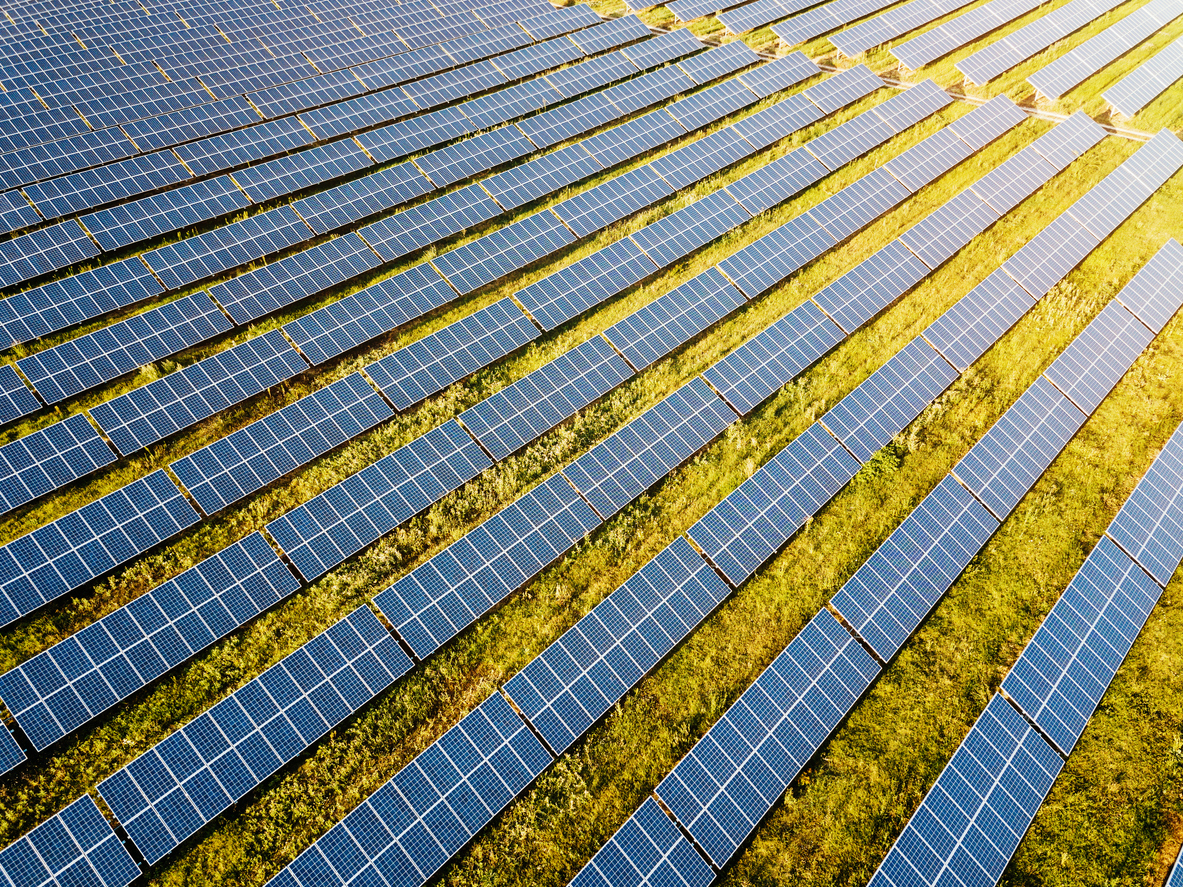Lauren Walker, an associate in the Real Estate Team looks at some of the points to consider when entering into arrangements for the construction of a solar farm.
Whether you are the landowner or the developer, there are many things to consider and decisions to be made when looking at a site for a Solar Farm.
If you are a developer you will want to ensure that you have the necessary grid connection and planning permission before taking a lease of the site and that all of the usual due diligence (including site surveys etc) has been completed to establish that there are no issues prohibiting a Solar Farm before you become liable for rent. You may also need to make arrangements with a lender to fund the construction of the Solar Farm in preparation for the lease being granted.
For the landowner, you are unlikely to want to give access to the land to the developer and/or tie up the land for any period of time without receiving something in return and ensuring that you are not going to be subject to any costs or losses as a result of any such arrangement.
It is therefore usual for the parties to enter into an option agreement, which gives the developer the option to take a lease of the land at any time during a specific period. For the developer, the option agreement provides the time and access required by the developer to ensure the site is viable, whilst giving the comfort that any expense they go to, for example to obtain the necessary grid connection and planning permission, will not be in vain. The landowner, in return, will be reimbursed to some extent for the period which the land is otherwise unavailable for alternative ventures and provide security that the landowner will not be out of pocket due to any actions of the developer.
Heads of Terms
Usually the developer and the landowner will agree a set of heads of terms prior to negotiating the option agreement and lease. Land agents can assist with the negotiation and agreement of heads of terms as they have knowledge of the market and will be able to provide advice on the commercial points such as value of rent, lease terms and, for landowners, any compensation that may need to be considered.
The heads of terms usually cover off key considerations such as:
- Fees – It is usual for the developer to pay the legal and agents fees for the landowner in these transactions. If this is agreed, what fees will be covered and when will these be payable?
- Extent of the site – This is usually defined by reference to a plan showing the full extent of the land which will be subject to the option agreement.
- The option period – How long should the option right exist for? Will there be a mechanism for the extension of the option period in specific circumstances, for example if planning permission has been applied for but a decision has not yet been given?
- Option fees – It is usual for the developer to pay an option fee to the landowner in return for them entering into the option agreement. How much should this be? Should there be an additional option fee if the option period is extended?
- Wayleaves and other agreements – It is not unusual for the landowner to be required to enter into or be a party to wayleave, easement and/or planning agreements to ensure the viability of a solar farm. Will the landowner be obliged to enter into any such agreements? Who will pay the fees of the landowner if these are required?
- Agri-Environmental considerations – If the landowner’s land is subject to any agri-environmental schemes, such as the Basic Payment Scheme, what impact will the option agreement have on those arrangements? What if the developer inadvertently breaches the conditions of the scheme when carrying out site investigations or surveys? Will the landowner be compensated for any lost payments? If so, on what basis?
- Exercise of the option – Can the option be exercised over the whole or any part only of the site? If exercised in relation to part only, how many times can the option be exercised during the option period? Are there any requirements as to the parts over which the option may be exercised– for example, must a part be of a certain size and/or in a certain location? Timing of the exercise should also be considered – what if the landowner has recently sown the land with a new crop? What compensation is payable to the landowner to balance out any loss they may suffer if the option is exercised?
- Exclusivity – It is usual for the developer to be given exclusivity over the proposed site for the option period which raises questions as to how long this should be for and whether it should apply to the whole of a landowner’s property or only to that within a certain distance of the proposed site?
- Obligations and Prohibitions – What obligations and prohibitions will each party be subject to under both the option agreement and the lease?
- Lease terms – How long should the lease term be? What rent will be payable – will this be linked to the size of the site or the capacity of the proposed solar farm? What repairing obligations will be imposed on the developer of the Solar Farm? What rights will need to be granted to both parties to ensure that the Solar Farm and any retained land by the landowner can be used concurrently? Will there be any break rights?
- Equipment – Where will all of the equipment be located? Will it all be required to fit within the proposed solar farm site or will some of the equipment will need to sit on the landowner’s retained land? Will the landowner be recompensed for any equipment which needs to be situated outside of the solar farm site? Will there be any additional documentation, such as a licence, required? If so, who should pay for these?
- Decommissioning the site – In order to facilitate the solar farm, there will be a significant amount of equipment installed on and/or around the site. What arrangements will there be for the removal of this at the end of the lease term? Is some form of security to guarantee the cost of decommissioning required and provided and if so, on what terms should it be provided? What should happen if the landowner wants the equipment to remain at the end of the lease?
These are only some of the matters which will need to be discussed and provided for within the heads of terms and later the documents themselves; there are many more considerations depending on the size, nature and location of the proposed solar farm site which may also be relevant. Some of the points to be examined may be more straightforward than others but it is important to consider all of these and provide as clear a set of heads of terms as possible so as to avoid any unnecessary delays in the transaction.
As with any other legal document, the heads of terms, option agreement and lease will need to be carefully reviewed as a whole. Some of the points set out above may need to be negotiated more than others and this article is not intended to be an exhaustive list of the points that will need to be considered. This will very much depend on the site in question.
It is important that any such arrangement which is put in place does not adversely affect the value of the investment – whether this is the solar farm for the developer or the land for the landowner.
If you require any assistance with a proposed solar farm, whether you are the landowner or a developer, please do get in touch with our Real Estate Team, who would be more than happy to help.

